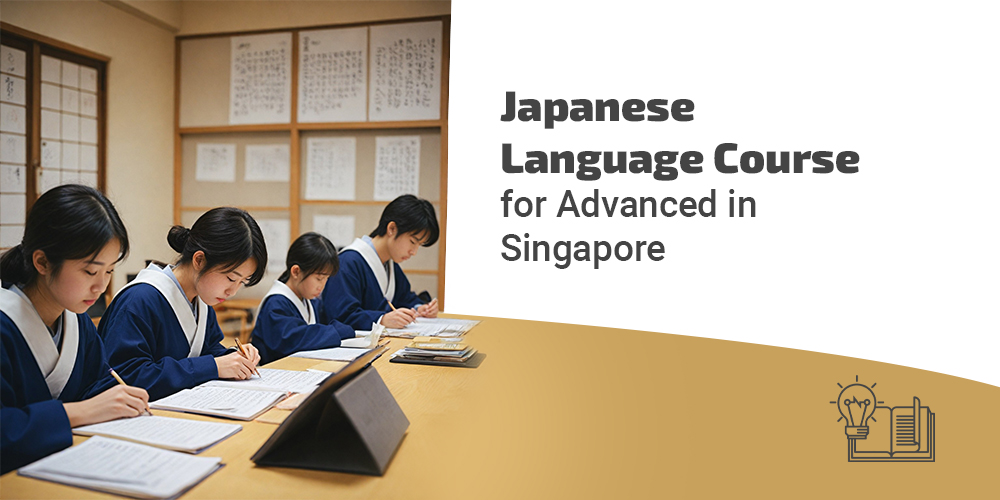Singapore, a melting pot of cultures and languages, offers a vibrant environment for learning and mastering various languages. For those who have journeyed beyond the basics and intermediates of Japanese, an advanced language course can open doors to deeper cultural understanding, professional opportunities, and personal enrichment. This blog explores what it means to undertake an advanced Japanese language course in Singapore and how it can benefit you.
Why Opt for an Advanced Japanese Language Course?
1. Proficiency and Fluency: Advanced courses are designed to push your language skills to near-native levels. They focus on complex grammatical structures, nuanced vocabulary, and sophisticated conversational abilities. This level of proficiency is particularly beneficial for those aiming to work in Japan or with Japanese companies.
2. Cultural Insights: Understanding a language at an advanced level inevitably leads to a deeper appreciation of the culture. Advanced courses often incorporate cultural studies, including literature, history, and social norms, offering a holistic approach to language learning.
3. Professional Edge: In the global job market, advanced language skills can set you apart. Whether you’re looking to work in Japan, engage in business dealings with Japanese firms, or require Japanese proficiency for academic research, an advanced course can significantly enhance your resume.
What to Expect in an Advanced Course
1. Complex Grammar and Vocabulary: Advanced courses delve into the intricate details of Japanese grammar and introduce a broad range of vocabulary, including idiomatic expressions and industry-specific terms.
2. Enhanced Communication Skills: These courses emphasize speaking and listening skills, preparing students for real-life interactions in professional and social settings. Expect to engage in debates, presentations, and discussions on various topics.
3. Reading and Writing Proficiency: Students will read advanced texts, including newspapers, literature, and academic journals, and will be expected to write essays, reports, and detailed compositions.
4. Cultural Immersion: Courses may include lessons on Japanese customs, traditions, and contemporary societal issues. This immersion helps students understand context, etiquette, and the subtleties of communication.
Where to Find Advanced Japanese Language Courses in Singapore
1. Language Schools: Several language schools in Singapore offer advanced Japanese courses. Institutions like Bunka Language School, The Japanese Cultural Society, and Ikoma Language School have well-structured programs with experienced instructors.
2. Universities: National University of Singapore (NUS) and Nanyang Technological University (NTU) offer advanced Japanese language courses as part of their Asian Studies or Language programs.
3. Private Tutors: For a more personalized learning experience, hiring a private tutor can be beneficial. They can tailor lessons to your specific needs and pace, providing focused attention on areas you wish to improve.
Tips for Success in an Advanced Japanese Language Course
1. Consistent Practice: Language proficiency comes with practice. Engage with Japanese media, join language exchange groups, and practice speaking as much as possible.
2. Stay Curious: Keep your interest alive by exploring various aspects of Japanese culture, such as anime, cuisine, history, and current events.
3. Use Technology: Leverage language learning apps and online resources to supplement your studies. Apps like Anki for flashcards and websites like NHK News Web Easy can be very useful.
4. Connect with Native Speakers: Interacting with native speakers is invaluable. Join local Japanese community events, find language exchange partners, or participate in online forums.
Conclusion
An advanced Japanese language course in Singapore is a gateway to achieving a high level of fluency and cultural understanding. It prepares you for professional opportunities, enriches your cultural knowledge, and enhances your communication skills. Embrace the challenge and dive deep into the fascinating world of the Japanese language. Your efforts will not only make you proficient in the language but also give you a profound appreciation of Japan’s rich cultural heritage.



